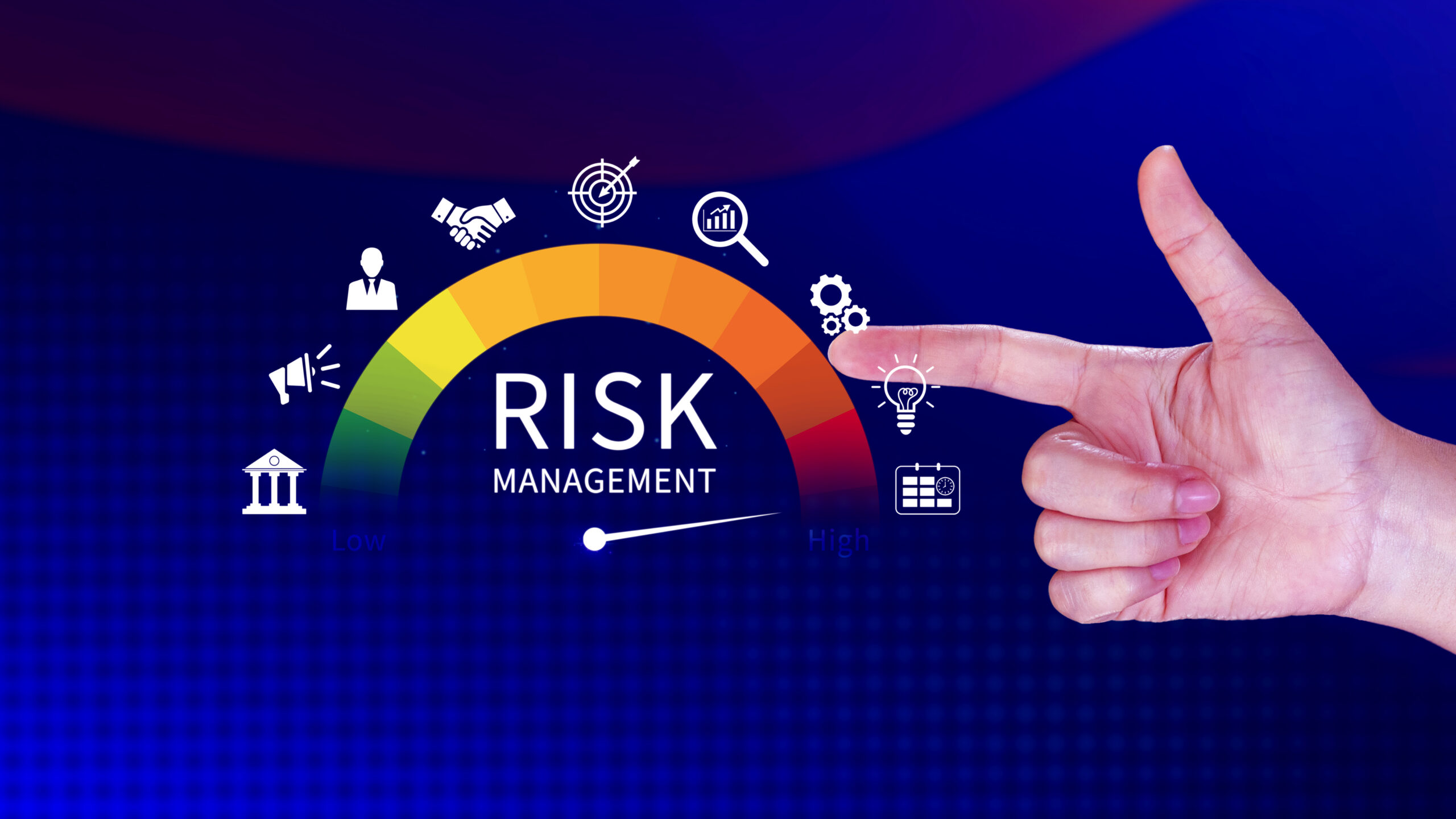
The Benefits and Risks of Accepting Cryptocurrency Payments for Your Business
Risks of Accepting Cryptocurrency: The world of commerce is in a constant state of evolution. From barter systems to coins, paper money to plastic cards, and now to digital payments, the way we transact is perpetually being redefined. The latest frontier in this evolution is cryptocurrency, a decentralized digital currency that promises to revolutionize finance. For forward-thinking businesses, this presents a tantalizing opportunity: the chance to tap into a new market, reduce costs, and position themselves at the forefront of innovation.
However, venturing into this new territory is not without its challenges. The conversation around digital assets is often a dual-sided one, highlighting immense potential alongside significant hurdles. While the benefits are compelling, a prudent business owner must also conduct a thorough analysis of the potential downsides. Understanding the complete picture, including the significant risks of accepting cryptocurrency, is not just advisable—it is essential for sustainable success.
This comprehensive guide is designed to provide you with a balanced and in-depth exploration of this topic. We will delve into the powerful advantages that crypto payments can offer your business, from accessing a global, tech-savvy customer base to enjoying lower transaction fees. More importantly, we will meticulously dissect the various risks of accepting cryptocurrency, offering you the knowledge and strategies needed to navigate them effectively. By the end of this article, you will be equipped to make an informed decision about whether integrating cryptocurrency is the right move for your business.
An Introduction to Cryptocurrency in Business
Before we weigh the pros and cons, it is crucial to establish a foundational understanding of what it means to accept cryptocurrency payments in a commercial setting. This isn’t just about technology; it’s about a fundamental shift in financial interaction.
What Are Cryptocurrency Payments?
At its core, a cryptocurrency payment is a transaction where a customer pays for goods or services using a digital currency like Bitcoin (BTC), Ethereum (ETH), or a stablecoin like Tether (USDT). Unlike traditional payments that go through banks and credit card networks, these transactions are typically processed on a decentralized network called a blockchain.
This process usually involves the customer using a digital wallet on their smartphone or computer to scan a QR code or enter a wallet address provided by the merchant. The funds are then transferred directly from the customer’s wallet to the merchant’s wallet, with the transaction being verified and recorded on the blockchain. This peer-to-peer nature is what sets it apart from the conventional financial system.
The Growing Trend of Crypto Adoption
What was once a niche interest for tech enthusiasts has exploded into a mainstream phenomenon. Major corporations, small businesses, and e-commerce platforms are increasingly integrating crypto payment options. This adoption is driven by consumer demand, the desire for lower fees, and the strategic advantage of being an early adopter in a rapidly growing space.
The rise of cryptocurrency payment processors has also made it easier than ever for businesses to accept digital assets without needing deep technical expertise. These services act as intermediaries, converting cryptocurrency payments into fiat currency (like USD or EUR) automatically, which helps to mitigate some of the inherent risks of accepting cryptocurrency, such as price volatility. This growing infrastructure signals that crypto payments are not a fleeting trend but a significant component of the future of finance.
The Compelling Benefits of Accepting Cryptocurrency
Integrating crypto payments can unlock a host of strategic advantages for your business. These benefits go beyond simply offering another payment option; they can fundamentally enhance your operational efficiency, market reach, and brand image.
Access to a New, Global Customer Base
Cryptocurrency is a global phenomenon. By accepting it, you instantly open your doors to an international market of tech-savvy consumers who may prefer or exclusively use digital currencies for their purchases. This is particularly advantageous for e-commerce businesses looking to expand their reach without navigating the complexities of international credit card processing and currency conversion fees.
This demographic is often characterized by higher disposable income and a strong belief in the technology, making them a valuable and loyal customer segment. They actively seek out merchants who support their preferred method of payment, providing an immediate competitive advantage.
Lower Transaction Fees
One of the most attractive benefits of accepting cryptocurrency is the potential for significantly lower transaction fees. Traditional credit card payments typically involve fees ranging from 2% to 4% per transaction, which can eat into a business’s profit margins. These fees are distributed among banks, payment processors, and card networks.
Cryptocurrency transactions, on the other hand, bypass this intricate network. While there are still network fees (or “gas fees”) to process a transaction on the blockchain, they are often substantially lower than traditional rates, especially for larger or international payments. This cost-saving can be a game-changer for businesses, particularly those with high transaction volumes or thin profit margins.
Faster, Borderless Transactions
Traditional bank transfers, especially international ones, can be slow and cumbersome, often taking several days to clear. Cryptocurrency transactions are processed 24/7 and can be confirmed in a matter of minutes, regardless of the geographic location of the buyer and seller.
This speed enhances cash flow and operational efficiency. You receive your funds faster, allowing you to reinvest or manage your finances more effectively. The borderless nature of crypto removes the friction associated with cross-border commerce, making it as easy to do business with someone in another hemisphere as it is with someone next door.
Enhanced Security Through Blockchain Technology
The underlying technology of cryptocurrency, the blockchain, offers a high level of security. Each transaction is encrypted and added to a distributed, immutable ledger. This makes it extremely difficult for fraudulent chargebacks to occur, a common headache for merchants dealing with credit card payments.
Once a crypto transaction is confirmed on the blockchain, it is final. This finality protects merchants from the revenue loss and administrative burden associated with chargeback fraud. While security is a complex topic with its own set of challenges, the fundamental architecture of blockchain provides a robust defense against certain types of financial fraud. Of course, this does not eliminate all security risks of accepting cryptocurrency, which we will explore later.
Positioning Your Business as an Innovator
In today’s competitive market, brand perception is everything. Accepting cryptocurrency payments sends a clear message that your business is forward-thinking, adaptable, and technologically advanced. This can enhance your brand’s reputation and attract customers, partners, and even potential employees who are drawn to innovative companies.
Being an early adopter can generate positive press and social media buzz, serving as a powerful marketing tool. It shows you are in tune with the future of finance and are willing to embrace change to better serve your customers.
A Deep Dive into the Risks of Accepting Cryptocurrency
While the benefits are significant, it is irresponsible to consider them without a thorough and honest assessment of the other side of the coin. The path to crypto adoption is paved with potential pitfalls, and a clear understanding of the risks of accepting cryptocurrency is the first step toward navigating them successfully. These challenges are not insurmountable, but they demand careful planning and strategic management.
The Challenge of Extreme Price Volatility
Perhaps the most well-known and significant of all the risks of accepting cryptocurrency is price volatility. The value of cryptocurrencies like Bitcoin and Ethereum can fluctuate dramatically in a short period. A payment worth $100 today could be worth $80 or $120 tomorrow.
This volatility poses a direct threat to a business’s financial stability. If you hold the cryptocurrency you receive, you are essentially speculating on its future value. A sudden downturn could severely impact your revenue and cash flow, turning a profitable sale into a loss. Managing this specific issue is a primary concern when evaluating the overall risks of accepting cryptocurrency for your operations. Many businesses are understandably hesitant to expose their hard-earned revenue to such market unpredictability.
Navigating the Complex and Evolving Regulatory Landscape
The regulatory environment for cryptocurrencies is still in its infancy and varies widely from country to country. Governments and financial bodies around the world are grappling with how to classify, tax, and regulate digital assets. This creates a landscape of uncertainty and compliance challenges for businesses.
Key concerns include:
- Taxation: How are crypto transactions taxed? Are they treated as property, currency, or something else? The rules can be complex, and failing to comply can result in severe penalties. This tax ambiguity is one of the more daunting risks of accepting cryptocurrency.
- Anti-Money Laundering (AML) and Know Your Customer (KYC): Businesses may be required to comply with strict AML and KYC regulations to prevent illicit activities, adding an administrative burden.
- Legal Status: In some jurisdictions, the legality of using cryptocurrency for payments is unclear or even restricted. A sudden regulatory crackdown could disrupt your payment operations. Staying updated on these legal risks of accepting cryptocurrency is a continuous effort.
Understanding the Security Risks of Accepting Cryptocurrency
While blockchain technology itself is secure, the ecosystem around it is not immune to threats. The security risks of accepting cryptocurrency are multifaceted and require robust protective measures. If you choose to hold your own crypto in a self-custody wallet, you become solely responsible for its security.
Potential security threats include:
- Hacking and Theft: Crypto exchanges and personal wallets can be targets for sophisticated hackers. A security breach could result in the irreversible loss of your funds.
- Phishing Scams: Malicious actors may try to trick you or your employees into revealing private keys or login credentials.
- Internal Fraud: Without proper controls, there is a risk of internal theft by employees who have access to the company’s digital wallets.
These operational and security risks of accepting cryptocurrency mean that businesses must invest in cybersecurity education and infrastructure.
Scalability and Transaction Speed Concerns
While crypto transactions are often faster than international bank wires, they are not always faster than instant payment methods like credit cards. Some popular blockchains, like Bitcoin and Ethereum, can experience network congestion during periods of high demand.
This congestion can lead to:
- Slower Confirmation Times: A payment might take longer than expected to be confirmed, which can be problematic for in-person retail experiences.
- Higher Transaction Fees: When the network is busy, the fees required to process a transaction can spike, sometimes negating the cost-saving benefits.
While newer blockchain technologies and “Layer 2” solutions are being developed to address these scalability issues, it remains one of the practical risks of accepting cryptocurrency for businesses that require high transaction throughput.
The Learning Curve and Implementation Costs
Finally, there is the practical challenge of implementation. Integrating a new payment system requires time, resources, and education. You and your staff will need to understand how digital wallets, payment processors, and transaction confirmations work. The technical and educational barriers are real risks of accepting cryptocurrency.
There may be initial costs associated with setting up the necessary software or hardware, integrating it with your existing point-of-sale or e-commerce platform, and training your employees. For a small business with limited resources, these upfront hurdles can be a significant deterrent. Acknowledging these implementation risks of accepting cryptocurrency allows for better budgeting and planning.
How to Mitigate the Risks of Accepting Cryptocurrency

Recognizing the challenges is only half the battle. The good news is that for each of the major risks of accepting cryptocurrency, there are practical strategies and tools available to mitigate them. A proactive approach can help you harness the benefits while protecting your business from the potential downsides. The key is not to avoid risk entirely, but to manage it intelligently.
Using Cryptocurrency Payment Processors
For most businesses, the single most effective way to manage the risks of accepting cryptocurrency, particularly volatility, is to use a third-party cryptocurrency payment processor. These services act as an intermediary between your customer and your bank account.
Here’s how they work:
- Your customer chooses to pay with crypto at checkout.
- The payment processor generates a payment request with a fixed exchange rate that is typically valid for a short period (e.g., 15 minutes).
- The customer sends the specified amount of crypto.
- The processor instantly converts the cryptocurrency into your preferred fiat currency (e.g., USD, EUR).
- The fiat funds are then deposited into your business bank account.
This process completely insulates your business from price volatility. You receive the exact fiat amount for your sale, regardless of what the cryptocurrency’s price does afterward. This is a crucial strategy for managing the financial risks of accepting cryptocurrency. These processors also simplify the technical integration, making it easier to get started.
Implementing Robust Security Protocols
Addressing the security risks of accepting cryptocurrency requires a multi-layered approach. Whether you use a payment processor or a self-custody solution, strong security practices are non-negotiable.
- Use Reputable Wallets and Exchanges: If you do decide to hold cryptocurrency, choose hardware wallets (cold storage) for long-term holding as they are disconnected from the internet and less vulnerable to hacking.
- Multi-Factor Authentication (MFA): Enforce MFA on all accounts associated with your crypto funds, including payment processor accounts and employee logins.
- Employee Training: Educate your staff on best practices for cybersecurity, including how to identify phishing attempts and the importance of never sharing private keys or passwords.
- Access Control: Limit access to your company’s crypto wallets and accounts to only essential personnel. Implement clear procedures for handling transactions to prevent internal fraud. A comprehensive security plan is vital for reducing the risks of accepting cryptocurrency.
Developing a Clear Volatility Management Strategy

If you choose to hold some of your crypto revenue instead of instantly converting it, you need a formal policy for managing volatility. This is a more advanced approach and is not recommended for most businesses, but it is an option for those with a higher risk tolerance.
Your strategy could include:
- Setting a Holding Threshold: Decide on a maximum percentage of your liquid assets that you are willing to hold in cryptocurrency. For example, you might decide to immediately convert 90% of all crypto payments to fiat and hold the remaining 10%.
- Using Stablecoins: Consider accepting and holding stablecoins, which are cryptocurrencies pegged to a stable asset like the US dollar. This offers the benefits of crypto transactions (speed, low fees) without the price volatility, effectively minimizing one of the primary risks of accepting cryptocurrency.
Staying Informed on Regulatory and Tax Changes
The regulatory landscape is a moving target, so staying informed is critical. This is one of the most complex risks of accepting cryptocurrency to manage, but ignorance is not a valid defense.
- Consult with Legal and Financial Professionals: Before you begin, consult with a lawyer and an accountant who have expertise in digital assets. They can provide guidance on compliance, tax reporting, and structuring your operations in a way that minimizes legal risks.
- Keep Meticulous Records: All cryptocurrency transactions must be meticulously recorded. This includes the date, time, amount, type of crypto, and the fiat value at the time of the transaction. This data is essential for accurate tax reporting.
- Subscribe to Industry News: Follow reputable news sources and regulatory updates in the cryptocurrency space to stay ahead of any changes that might affect your business. Proactive compliance is the best defense against the regulatory risks of accepting cryptocurrency.
The following table provides a clear overview of the primary risks and the most effective mitigation strategies:
| Risk Category | Specific Risk | Primary Mitigation Strategy | Tools & Services |
| Financial | Extreme Price Volatility | Use a payment processor for instant fiat conversion. | BitPay, Coinbase Commerce, Utrust |
| Financial | Complex Tax Reporting | Keep meticulous records of all transactions and consult with a crypto-savvy accountant. | Crypto tax software (e.g., Koinly, CoinLedger), professional accounting services |
| Regulatory | Evolving Legal Landscape & AML/KYC | Work with legal counsel specializing in fintech and use compliant payment processors. | Legal advisors, compliant payment gateways that handle KYC |
| Security | Hacking, Theft, and Scams | Implement multi-factor authentication (MFA), use hardware wallets for storage, and conduct regular employee security training. | Hardware wallets (Ledger, Trezor), YubiKey for MFA, cybersecurity training programs |
| Operational | Network Congestion & High Fees | Utilize payment processors that leverage Layer 2 solutions or offer multiple cryptocurrency options. | Payment processors supporting the Lightning Network (for Bitcoin) or Polygon (for Ethereum) |
| Operational | Technical Learning Curve | Start with a user-friendly payment processor that offers seamless integration plugins for your existing platform. | E-commerce plugins (Shopify, WooCommerce), dedicated customer support from your chosen processor |
By systematically addressing each of the potential risks of accepting cryptocurrency, you can build a resilient framework that allows your business to innovate safely.
The Future of Cryptocurrency in Commerce
The journey of cryptocurrency in the commercial world is just beginning. As the technology matures, usability improves, and regulatory frameworks become clearer, we can expect to see wider adoption. The development of central bank digital currencies (CBDCs) and the increasing integration of blockchain technology into traditional finance suggest a future where digital and conventional payment systems coexist and interconnect.
For businesses today, the decision to accept crypto is a strategic one. It’s about more than just a payment method; it’s about positioning for a future where finance is more decentralized, efficient, and global. While the risks of accepting cryptocurrency are real and demand respect, they are increasingly manageable with the right tools and strategies. The businesses that learn to navigate this new landscape effectively will be the ones best positioned to thrive in the economy of tomorrow.

Conclusion: Balancing Opportunity Against the Risks of Accepting Cryptocurrency
The decision to integrate cryptocurrency payments into your business is not one to be taken lightly. It requires a careful balancing act, weighing the significant potential for growth, cost savings, and market expansion against the very real and multifaceted risks of accepting cryptocurrency.
The allure of accessing a new global customer base, lowering transaction fees, and positioning your brand as an innovator is powerful. These are tangible benefits that can provide a significant competitive edge in a crowded marketplace.
However, these opportunities must be viewed through the lens of caution. The extreme price volatility, the uncertain regulatory environment, the critical security challenges, and the operational learning curve are not minor hurdles. Ignoring these risks of accepting cryptocurrency can lead to financial loss, legal trouble, and reputational damage.
The optimal path forward for most businesses involves a measured and strategic approach. Starting with a reputable cryptocurrency payment processor allows you to offer the option to customers while insulating your business from the most severe risks, especially volatility. This allows you to test the waters, gauge customer demand, and build familiarity with the ecosystem without taking on undue risk.
Ultimately, the choice is yours. By arming yourself with knowledge, consulting with experts, and implementing robust mitigation strategies, you can make an informed decision that aligns with your business goals and risk tolerance. The world of digital currency is here to stay, and understanding both its promise and its peril is the hallmark of a truly forward-thinking enterprise.
Frequently Asked Questions (FAQ)
1. Do I need to be a tech expert to accept crypto payments?
No, you do not. Modern cryptocurrency payment processors are designed to be user-friendly. They often provide simple plugins for popular e-commerce platforms like Shopify and WooCommerce, or straightforward API integrations. The processor handles the technical complexity of the transaction, allowing you to accept crypto as easily as you accept credit card payments.
2. How do I handle crypto price volatility for my business revenue?
The most effective way to eliminate volatility risk is to use a payment service provider that offers instant conversion from cryptocurrency to fiat currency (like USD or EUR). When a customer pays, the service locks in the exchange rate and deposits the exact fiat amount into your bank account, meaning your business never has to hold the volatile asset.
3. Are cryptocurrency transactions truly anonymous and untraceable?
This is a common misconception. While transactions on public blockchains like Bitcoin are pseudonymous (tied to a wallet address, not a personal name), they are not anonymous. Every transaction is recorded on a public ledger and can be traced. Forensic blockchain analysis firms can often link wallet addresses to real-world identities, especially when funds are moved to a regulated exchange that requires identity verification.
4. What are the most popular cryptocurrencies for business transactions?
Bitcoin (BTC) and Ethereum (ETH) remain the two most widely accepted cryptocurrencies. However, stablecoins like Tether (USDT) and USD Coin (USDC) are rapidly gaining popularity for commerce because their value is pegged to a stable asset, removing the issue of volatility for both the customer and the merchant.
5. How are cryptocurrency payments handled for tax purposes?
Tax regulations vary by country, but in many places, including the United States, cryptocurrencies are treated as property, not currency. This means receiving a crypto payment is a taxable event. You must record the fair market value of the crypto in your local currency at the time of the transaction for revenue purposes. It is crucial to consult with a tax professional who has expertise in digital assets to ensure full compliance.